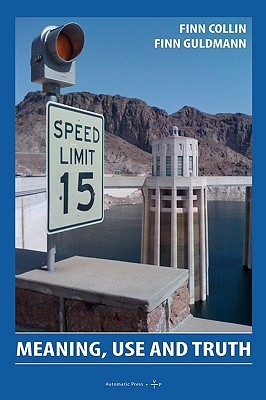
- We will send in 10–14 business days.
- Author: Finn Collin
- Publisher: Automatic Press / VIP
- ISBN-10: 8792130283
- ISBN-13: 9788792130280
- Format: 15.2 x 22.9 x 1.8 cm, minkšti viršeliai
- Language: English
- SAVE -10% with code: EXTRA
Reviews
Description
What is linguistic meaning? What do people precisely do in uttering sentences? What are the principles involved in linguistic interpretation? How is it possible that linguistic signs, such as oral sounds or squiggles on a piece of paper, refer to things in the world? This book presents the attempts by philosophers in the 20th century to understand the workings of language, and address questions such as these. Presenting an accessible, balanced introduction to the philosophy of language as it has evolved in analytical philosophy during the 20th century, this textbooks offers equal attention to both of the main divisions within the field of philosophical semantics -truth-conditional theory and speech act theory - and shows how these theoretical approaches may be construed as complementary abstractions from a prior, undifferentiated understanding of meaning as defined by use. Meaning, Use and Truth offers students of philosophy of language, and those in related fields such as logic and linguistics, a comprehensive introduction to the field, and explores why philosophy of language in the 20th century could be viewed as providing the key to the solution if the classical problems of philosophy. Finn Collin is Professor of Philosophy at the University of Copenhagen, Denmark. Finn Guldmann is External Lecturer at the University of Copenhagen and at Roskilde University, Denmark.
EXTRA 10 % discount with code: EXTRA
The promotion ends in 22d.13:17:19
The discount code is valid when purchasing from 10 €. Discounts do not stack.
- Author: Finn Collin
- Publisher: Automatic Press / VIP
- ISBN-10: 8792130283
- ISBN-13: 9788792130280
- Format: 15.2 x 22.9 x 1.8 cm, minkšti viršeliai
- Language: English English
What is linguistic meaning? What do people precisely do in uttering sentences? What are the principles involved in linguistic interpretation? How is it possible that linguistic signs, such as oral sounds or squiggles on a piece of paper, refer to things in the world? This book presents the attempts by philosophers in the 20th century to understand the workings of language, and address questions such as these. Presenting an accessible, balanced introduction to the philosophy of language as it has evolved in analytical philosophy during the 20th century, this textbooks offers equal attention to both of the main divisions within the field of philosophical semantics -truth-conditional theory and speech act theory - and shows how these theoretical approaches may be construed as complementary abstractions from a prior, undifferentiated understanding of meaning as defined by use. Meaning, Use and Truth offers students of philosophy of language, and those in related fields such as logic and linguistics, a comprehensive introduction to the field, and explores why philosophy of language in the 20th century could be viewed as providing the key to the solution if the classical problems of philosophy. Finn Collin is Professor of Philosophy at the University of Copenhagen, Denmark. Finn Guldmann is External Lecturer at the University of Copenhagen and at Roskilde University, Denmark.


Reviews